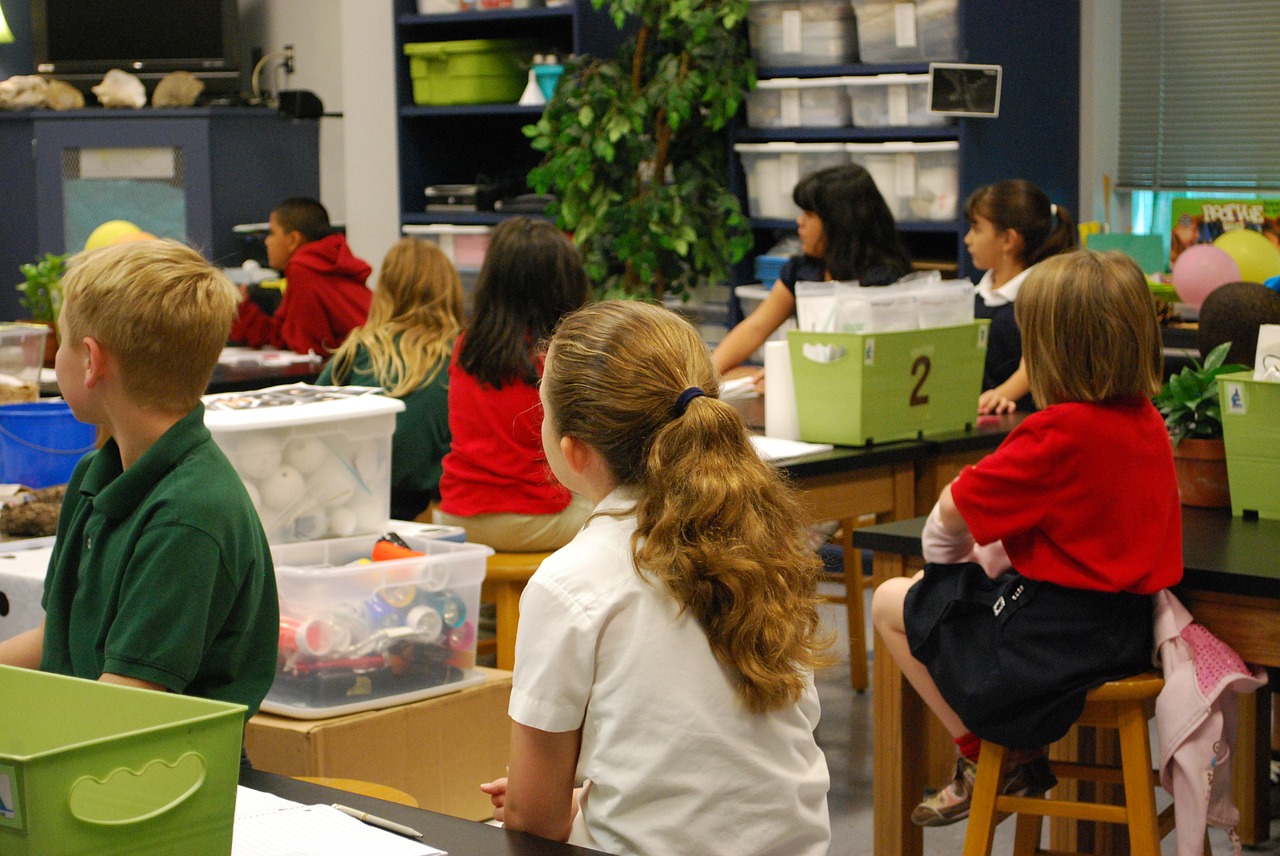Kinds of Student Misbehavior

Children are no angels. Whether they’re five or fifteen, children act out and misbehave. Sometimes, it’s down to emotions and not having an outlet to express themselves. Then, some students intentionally create chaos in the classroom. Those are the biggest obstacles because it often means ongoing behavior problems.
You, however, need to face the issue head-on, otherwise, the child will never thrive in the outside world. So, what kinds of student misbehaviors are there, and what can you do to solve them?
Absentmindedness
Children can have issues with inattention; this is when they daydream. It’s incredibly frustrating because the child doesn’t take in a word you say. Whether it’s intentional or otherwise, it needs to stop. You need to find ways to hold the focus of the child because sometimes, they can’t control it.
Having visual aids might retain the interest of the child.
Disruption in Class
It’s incredibly frustrating when a child gets up and starts wandering around the class while you’re trying to teach. It disrupts others and makes you lose control of the room. Instead, you must get through to the disruptive child. Calmly ask them to return to their seat. The next time the child moves when they’re not supposed to, give them a warning and take it from there. Sometimes, that’s all the child needs – a good telling off.
Teasing Classmates
Children often have behavior issues that cause them to act out against others. Some act out for attention, others do it because they can get away with it. As the teacher, you must call the child out when they annoy or provoke other children. For instance, give them a warning and call their parents. It might be enough to get them to settle down.
Constant Chatter
Children often talk over teachers because they want to see a rise out of you. Their friends think they’re smart, and you look like the bad guy in the situation. You, however, cannot let a child dictate what happens in the class. Whenever a child tries talking over you, calmly ask them to step out of the room. That removes them from the situation and keeps the rest of the students quiet. Report them to the headteacher and call their parents.
Cheating on Tests
There are typically two main reasons why a child cheats on a test; they are either too lazy to do the work or genuinely can’t. It isn’t a behavior you want to encourage, even when the child has done so with the best of intentions. Call in their parents and find out the reason behind the child cheating.
Lying or Stealing
These are serious problems and must be addressed immediately. Whenever a child lies or steals, it’s time to call in the principal and parents. While the child might end up with a few afterschool detentions, suspensions could also be on the cards. It might just be the short, sharp, shock that scares them into correcting their disruptive behavior.
A Lack of Interest
This type of disruptive behavior is more serious than you might realize. When a child has a lack of interest, they won’t join in with the class and may struggle throughout their education. Finding out the cause of the child’s behavior makes your job a lot easier. It also allows you to determine what course of action is best for the child.
Mischief and Defiance
Children can display a malicious mischief streak; this is when they intentionally damage property that belongs to someone else. It’s not a trait you want to see in a child. Defiance of authority is a major problem too because it means they lack respect for the teacher. In these instances, you need to call in their parents and find out why the child is behaving in this manner.
Hostility and Physical Aggression
Children fight and argue, but most will calmly resolve the problem within a matter of minutes. Unfortunately, some children can exert continued physical aggression and must be stopped quickly. Children should not be actively showing hostility towards a classmate. So, whenever they raise a hand, whether it’s a pinch or punch, call in the parents and stamp out the problem now.
Sexual Harassment
Regardless of age, a child should never emotionally or physically harass someone sexually. Whether it’s physical contact, innuendos, or the language they use, it’s harassment. If someone reports this to you, contact the authorities right away. Call in the principal and get two sides of the story; if there is cause for concern, the authorities may need to step in and do something.
The Unpredictability of Children
Children misbehave and act out; most of the time, it can be resolved, and the problem doesn’t surface again. Unfortunately, some children will continue to act out, and this is a major problem. You cannot allow a child to act inappropriately otherwise they’ll continue with the behavior. Instead, you need to identify the issue and the cause behind it. You then need to take appropriate action so that the child can move on.





